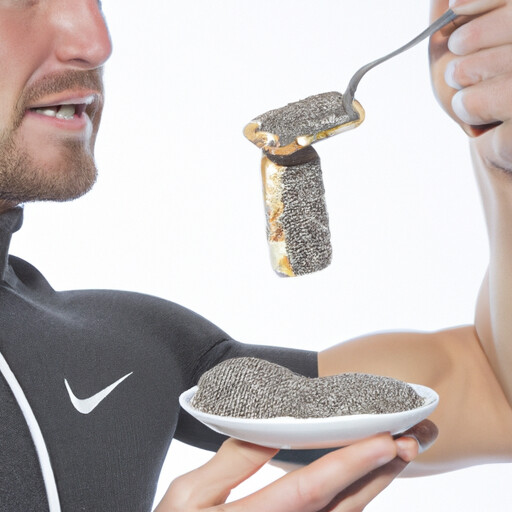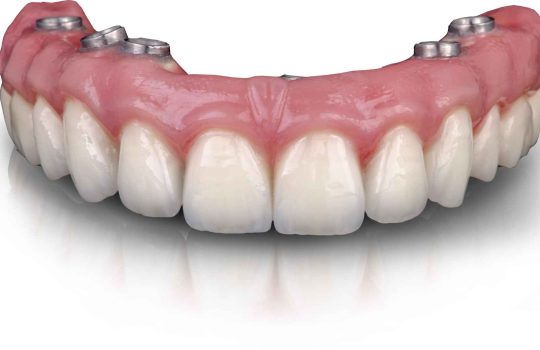
Unlocking the secret to muscle gain might seem like a Herculean task, but what if the key lies in a tiny, yet powerful seed? Chia seeds have emerged as a potent superfood, boasting exceptional nutritional properties.
These tiny warriors pack a punch, elevating their status among athletes, fitness enthusiasts, and the health-conscious alike. As we unravel the benefits of these unassuming seeds, we'll discover how they play an essential role in muscle building while addressing the challenges faced by vegans in finding high-quality protein sources. Join us in exploring the incredible world of chia seeds and how they can boost your journey towards achieving peak physical fitness and health.
Importance of Protein for Muscle Gain
Protein plays an essential role in muscle gain and overall health. It serves as a critical building block for body tissues, enhancing muscle growth, repair, and maintenance. A proper intake of high-quality protein sources contributes to overall health, improves physical performance, and boosts the immune system.
Despite its importance, many people suffer from protein deficiency, which can lead to several health issues like muscle wasting, poor recovery, and slow metabolism. According to the World Health Organization, approximately 21% of the Israeli population does not meet the recommended daily intake of 46-56 grams of protein.
For those looking to optimize their muscle growth, it is crucial to seek out high-quality protein sources and understand how their benefits contribute to muscle gain. In the following sections, we will delve deeper into chia seeds as a potent alternative for achieving this goal and discuss its unique properties.
Benefits of Chia Seeds for Health
Chia seeds are small, nutrient-dense powerhouses that provide a wealth of health benefits. They are low in calories but packed with essential nutrients. Chia seeds are an excellent source of dietary fiber, providing nearly 11 grams of fiber per 28 grams (1 ounce) serving. This high fiber content helps maintain healthy digestion, prevents constipation, and contributes to maintaining a healthy weight.
Additionally, chia seeds are a great source of heart-healthy omega-3 fatty acids, which are crucial for reducing inflammation and maintaining brain function. A 28-gram serving of chia seeds contains about 5 grams of alpha-linolenic acid (ALA), contributing to the recommended daily intake of omega-3s for adults.
Chia seeds are also rich in antioxidants, which protect against oxidative stress and reduce the risk of chronic diseases. Research indicates that regular consumption of chia seeds can lower blood pressure, improve blood sugar control, and support overall cardiovascular health. Incorporating chia seeds into your diet can help you reap the numerous health benefits and improve your well-being. In the upcoming sections, we will explore how chia seeds can also help with muscle gain and provide ideas for incorporating them into your meals.
Chia Seeds as a High-Quality Protein Source for Vegans
Finding high-quality protein sources can be a challenge for vegans due to the exclusion of animal products from their diet. As a result, vegans must rely on plant-based alternatives to obtain their protein requirements. Chia seeds are an excellent option in this regard, providing a rich source of easily digestible, bioavailable protein content that can be of vital importance to vegans.
The protein content in chia seeds is found to be about 16-18% by weight, making them an excellent plant-based choice for meeting daily nutritional needs. When compared to other common vegan protein sources such as lentils (9% protein) and quinoa (14% protein), chia seeds offer superior quality.
Moreover, chia seeds are a complete protein source, containing all nine essential amino acids that the body cannot synthesize on its own. This makes chia seeds highly desirable within the vegan community to support muscle growth and maintenance. Incorporating chia seeds into a vegan diet can help bridge the gap in protein consumption and promote optimal health and fitness goals, as discussed later in 'Ways to Incorporate Chia Seeds into Your Diet' section.
Muscle Building Properties of Chia Seeds
Chia seeds offer a multitude of properties that contribute to muscle growth. A crucial factor is their amino acid profile. Amino acids are the building blocks of proteins, and chia seeds provide all nine essential amino acids that the body cannot synthesize by itself. These amino acids are vital for muscle repair and growth post-workout.
Additionally, chia seeds contain omega-3 fatty acids, which are known to combat inflammation, reduce muscle soreness, and promote faster recovery. This allows individuals to resume their exercise routine with less downtime and achieve better results. Chia seeds are also rich in antioxidants, which help neutralize free radicals generated during workouts, protecting the muscles from oxidative stress and supporting overall performance.
Research has shown positive correlations between chia seed consumption and improved exercise performance. For instance, a study published in the Journal of Strength and Conditioning Research discovered that incorporating chia seeds into an athlete's diet enhanced endurance capacity and reduced workout-induced inflammation. Therefore, including chia seeds in one's nutrition plan can be incredibly beneficial to muscle growth and overall physical health.
Ways to Incorporate Chia Seeds into Your Diet
Chia seeds can be easily added to your diet due to their versatile nature and mild flavor. Let's explore some practical tips and delicious ideas to help you incorporate chia seeds into your daily meals and snacks, chia promoting muscle gain and overall health.
Smoothies and Yogurt
One of the simplest ways to include chia seeds in your diet is by adding them to smoothies or yogurt. Add a tablespoon (roughly 12 grams) of chia seeds to your next smoothie blend or mix them into your yogurt, creating a fiber and protein-rich meal.
Breakfast Bowls and Oatmeal
Chia seeds can provide a healthy crunch to your breakfast bowls or oatmeal. Sprinkle some chia seeds on top of your cereal, granola, or oatmeal to increase their nutritional value without altering their flavor drastically.
Salads and Sandwiches
For a nutritious lunch option, add chia seeds to your salads or sandwiches. Just a sprinkle of chia seeds on top of a fresh salad or mixed into your sandwich fillings will boost your protein and fiber intake.
Baking and Desserts
Chia seeds can also be incorporated into baking recipes and desserts. When baking muffins, bread, or pastries, replace a portion of the flour with chia seeds to increase the protein content of your baked goods. Additionally, mix chia seeds with some water to create a healthy, gel-like substitute for eggs in vegan recipes.
Recipes to Supercharge Muscle Gain with Chia Seeds
1. Chia protein smoothie: Add 2 Tbsp chia seeds to your favorite fruit smoothie. 2. Chia seed and quinoa salad with mixed veggies. 3. Chia pudding bowl: Mix 1/4 cup chia seeds, 1 cup almond milk, and 1 Tbsp maple syrup. Let it sit overnight, and top with nuts and berries.
Advantages and Disadvantages of Incorporating Chia Seeds for Muscle Gain
Advantages:
- Nutrient-Dense: Chia seeds are packed with essential nutrients like fiber, omega-3 fatty acids, and antioxidants, which contribute to overall health and well-being.
- High-Quality Protein Source: Chia seeds are an excellent source of protein, offering a complete amino acid profile that is essential for muscle growth.
- Vegan-Friendly: Chia seeds are a plant-based protein source, making them suitable for vegan and vegetarian diets.
- Easy to Incorporate: Chia seeds can be easily added to a variety of dishes, snacks, and beverages, making it simple to include them in your daily meal plan.
Disadvantages:
- Caloric Content: Chia seeds are relatively calorie-dense, so excessive consumption can lead to unintentional weight gain if not monitored closely.
- Cost: Chia seeds can be more expensive than other sources of protein, which may be a concern for those on a tight budget.
- Potential Allergies: While rare, some individuals may experience an allergic reaction to chia seeds, which could lead to gastrointestinal discomfort or other symptoms.
- Texture and Taste: Chia seeds have a unique texture and taste, which may not be appealing to everyone. It may take some experimentation with recipes to find palatable ways to incorporate them into your diet.

